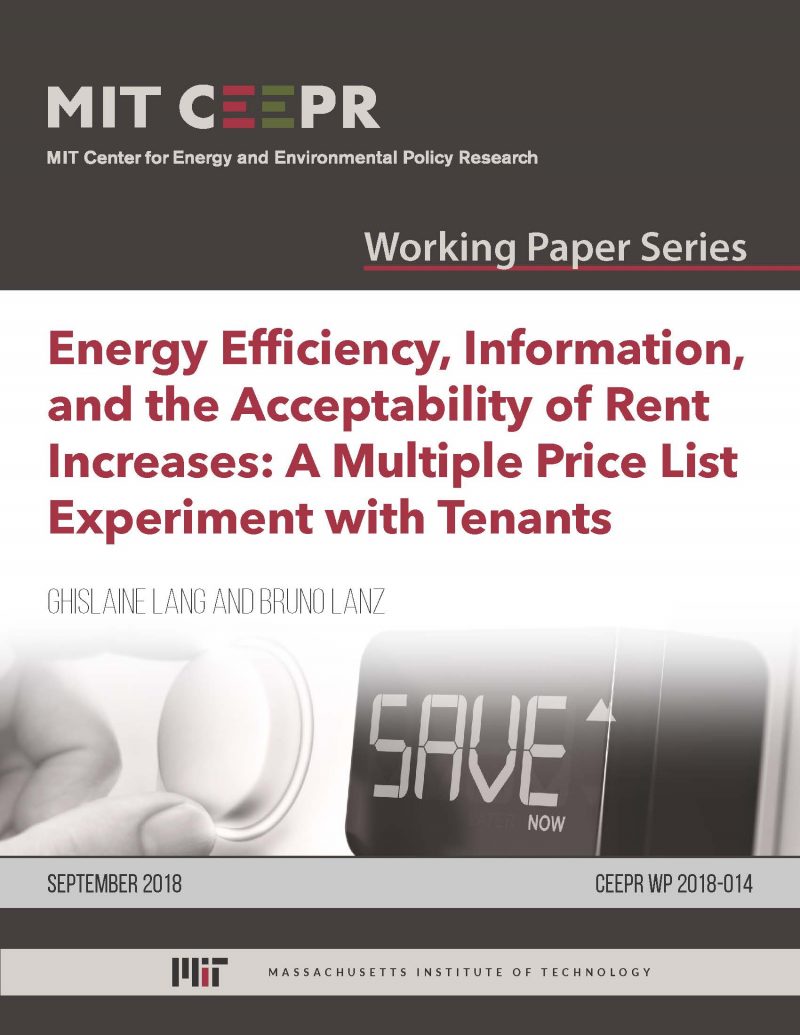Energy Efficiency, Information, and the Acceptability of Rent Increases: A Multiple Price List Experiment with Tenants
Ghislaine Lang and Bruno Lanz
September 2018
This paper studies the role of imperfect information and attentional biases in the context of energy efficiency investments in rented properties and associated split incentives. We design a multiple price list experiment representing owners’ decision to replace the central heating appliance, and employ both within-subject information disclosure and between-subject variation in information provision to quantify how tenants trade-off energy efficiency and rent increases. A set of quantile regressions suggests that information on expected energy bills reduction induces around 30% of tenants to equate financial savings and acceptable rent increase. Around 20% of tenants oppose rent increase and do not respond to information, whereas tenants’ valuation in the upper tail of the distribution exceeds financial savings, presumably on account of pro-environmental motives. By contrast, information on energy bills variability dampens acceptable rent increase. Our results highlight the importance of realistic ex-ante estimates of financial savings associated with energy efficiency investments.
Keywords: Market failures; Information; Split incentives; Energy efficiency; Environmental policy; Rented properties; Economic experiments; Multiple price lists.
JEL Codes: Q4; R31; Q5; H23.



